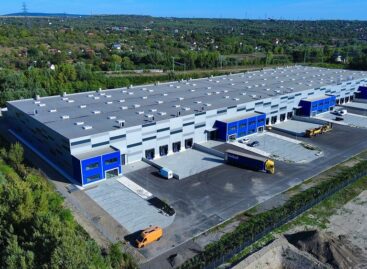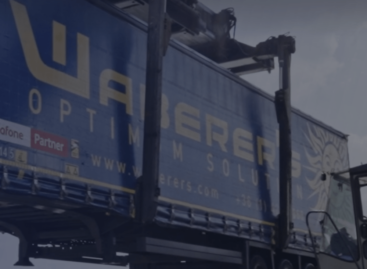Energy efficiency investments and climate protection measures are becoming impossible
Further amendments are needed to the energy efficiency law before the Parliament, according to logistics professional organizations. They warn that if the amendment is adopted in December without revision, it will not only make it impossible to shift trucks to rail, but also many other energy efficiency or climate-friendly measures affecting businesses and the public, such as heating and lighting modernization, ceiling insulation, window and door replacements, and vehicle fleet replacements. The organizations warn that the Energy Efficiency Obligation System (EKR) and the sales system for the certified energy savings (HEM) it generates have collapsed.
 The National Transport Industry Association of Private Entrepreneurs (NiT Hungary), the Hungarian Road Transport Association (MKFE), the Hungarian Railway Association (HUNGRAIL) and the Association of Hungarian Logistics Service Centers (MLSZKSZ) are asking the Parliament not to adopt the amendment to the 2015 Energy Efficiency Act in its current form. The legislation adopted ten years ago stipulated that in order to protect the climate, Hungary’s final energy consumption should not exceed the 2005 level by 2030. This would require a reduction in domestic energy consumption of around 7 petajoules.
The National Transport Industry Association of Private Entrepreneurs (NiT Hungary), the Hungarian Road Transport Association (MKFE), the Hungarian Railway Association (HUNGRAIL) and the Association of Hungarian Logistics Service Centers (MLSZKSZ) are asking the Parliament not to adopt the amendment to the 2015 Energy Efficiency Act in its current form. The legislation adopted ten years ago stipulated that in order to protect the climate, Hungary’s final energy consumption should not exceed the 2005 level by 2030. This would require a reduction in domestic energy consumption of around 7 petajoules.
Therefore, natural gas or electricity traders and universal service providers, as well as fuel users, must reduce their own energy consumption. They can achieve this by accounting for certified energy savings in the Energy Efficiency Obligation System (EKR), for example after thermal insulation, heating and lighting modernization, machine replacements or even after rail transportation of truck semi-trailers.
As of December this year, the number of certified energy savings recorded in the EKR system apparently covers the entire energy savings requirement required by 2030. In other words, companies obligated to save energy already have as many certified energy savings as they should have achieved by 2030. Therefore, from now on, these obligated companies will no longer obtain certified energy savings in the EKR system until 2030.
In reality, however, the climate goals are not being met because among the certified energy savings, there are also short-lived ones – typically activities that promote attitude formation – that do not count towards Hungary’s EU and national energy savings commitments. This only includes permanent, certified energy savings, such as insulation, heating upgrades, and the replacement of truck fleets with more modern ones.
Related news
Waberer’s will replace around 1,000 devices in its vehicle fleet this year
🎧 Hallgasd a cikket: Lejátszás Szünet Folytatás Leállítás Nyelv: Auto…
Read more >Related news
Amikor a megszámlálhatatlan megszámlálhatóvá válik
🎧 Hallgasd a cikket: Lejátszás Szünet Folytatás Leállítás Nyelv: Auto…
Read more >New country director at the helm of JYSK Hungary
🎧 Hallgasd a cikket: Lejátszás Szünet Folytatás Leállítás Nyelv: Auto…
Read more >









